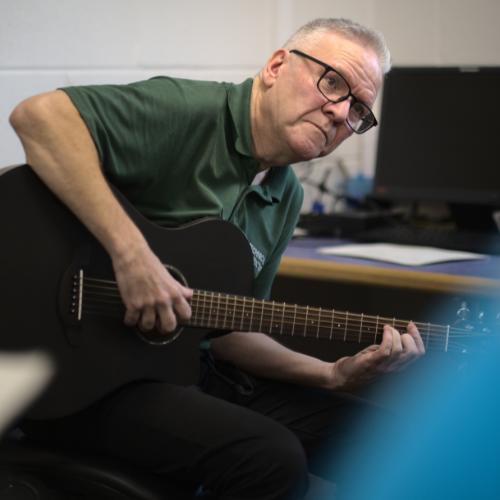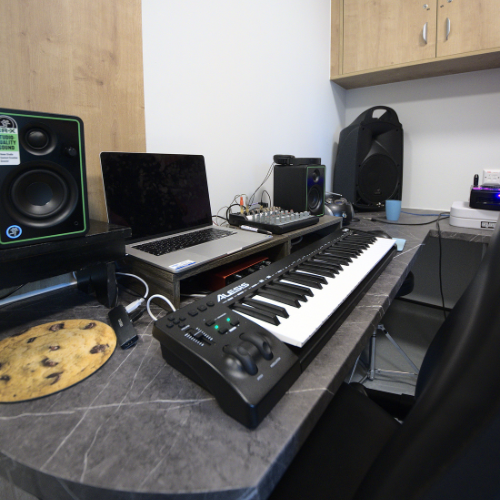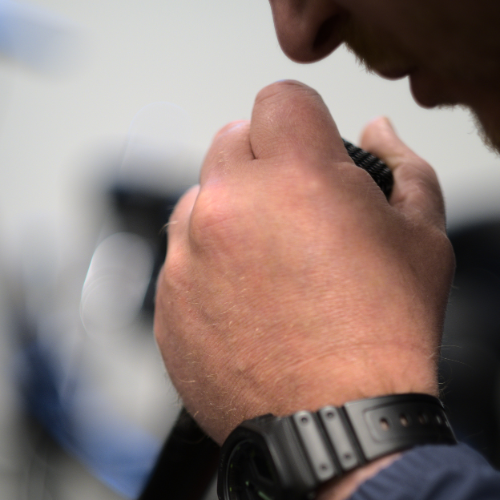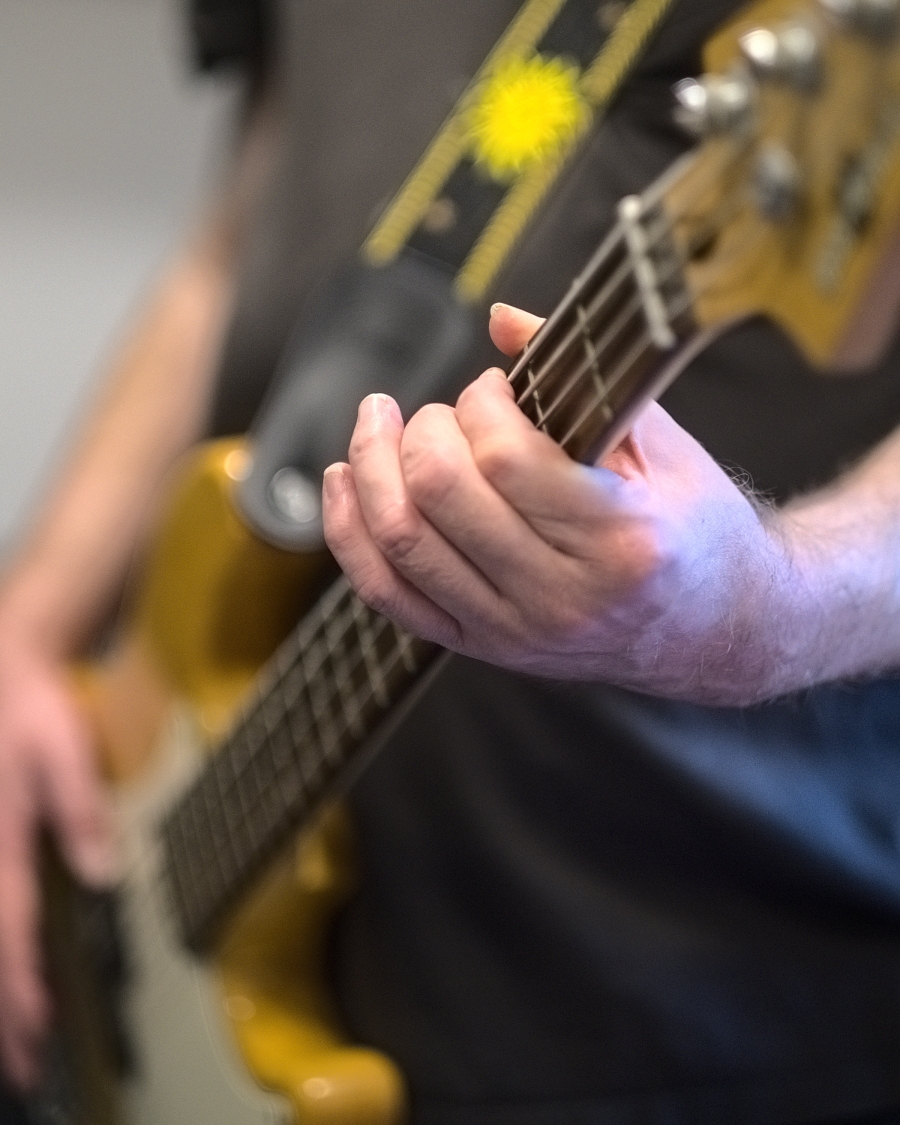A new music room has opened at our Guild Lodge site. As part of occupational therapy, patients now have the opportunity to learn an instrument, compose music, write songs, rap, DJ, play in a band or join the choir.
The official opening of the ‘Sound Kitchen’ (aptly named as it replaced an old kitchen) drew a big crowd of patients and staff from across our Whittingham-based site. There was an excited and vibrant atmosphere as people gathered for an afternoon of performances from patients.
Based in the Occupational Therapy Department at the heart of Guild Lodge, the team offer an extensive number of creative programmes supporting people with serious mental illness and acquired brain injuries.
Technical Instructor, Simon Davis, has worked at Guild Lodge for 20 years and has always believed in the therapeutic benefits of creating music. Simon's passion and determination are the driving force behind the music room, he said:
“I’ve wanted to see this happen for many years and around 18 months ago I was given the go ahead to trial the project for a six-month period and here we are nearly two years later showcasing some of the talent we have here at Guild Lodge.”
It was clear to see the pride on the faces of Simon and his colleagues throughout the afternoon, with him adding:
"It doesn't feel like work to me, I get to share my passion for music with our patients and support them to flourish creatively."
That creativity was in abundance throughout the event. The Guild Band, made up of guitars, drums, keyboard and vocals, covered a number of songs like they had been performing with each other for years, the choir came together and sang in harmony, even managing some audience participation with a rendition of ‘A Little Respect’!
According to the published paper, ‘Music, mental health, and immunity’ (Lavinia Rebecchini), “Music is not simply entertainment: scientific research has shown that it can influence physiological processes that enhance physical and mental wellbeing. Studies on patients diagnosed with mental disorders such as anxiety, depression, and schizophrenia have shown a visible improvement in their mental health after general music and music therapy interventions.”
One patient, with a talent for writing, performed a series of hard-hitting, autobiographical raps, exploring their experience in the prison system, mental health struggles, trauma and recovery, they explained:
“It’s all true, I’ve written these (raps) about my life.”
Donna Robinson, Chief Operating Officer, was invited to officially open the Sound Kitchen, she said:
“The rap lyrics were a powerful reminder of how far many of our patients have come, how they’ve worked hard to turn their lives around and engaged with health services. The final rap was a thank you to the staff which was a moving testament to the commitment, passion and care our colleagues provide.”



Recordings

